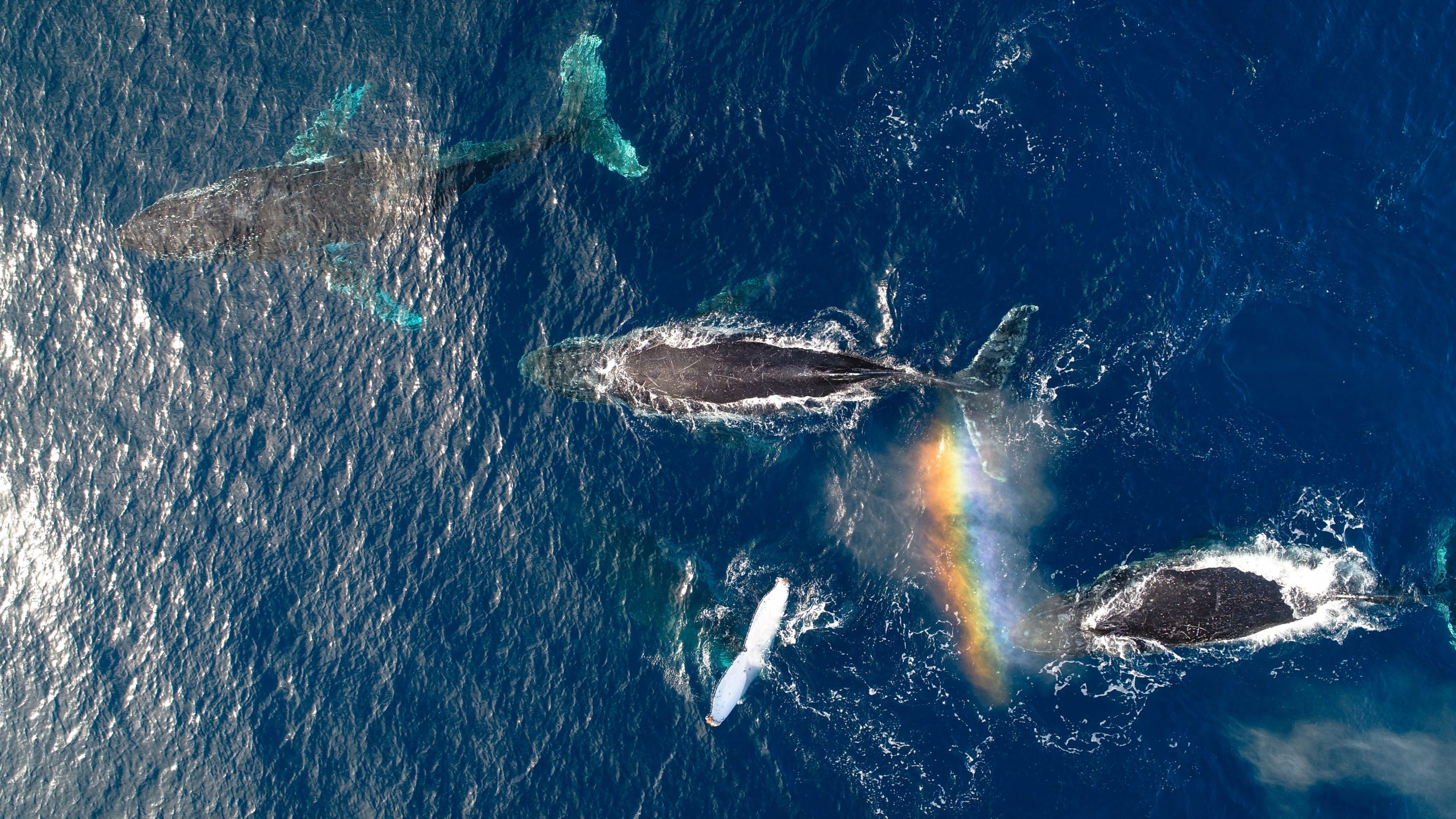
Research has found humpback whales migrating off Australia’s east coast were happier and less stressed during the COVID-19 pandemic.
The University of Queensland’s School of the Environment led the study using drone vision and blubber samples to measure the health, size and condition of the mammals off Minjerribah, near North Stradbroke Island.
The whales were monitored during their annual migration and intense breeding period in 2020 and 2021 and found to have lower cortisol concentrations as the pandemic entered its second year.
READ MORE: At least 89 killed as boat capsizes off Africa
The findings signalled a decline in “environmental stressors” partly due to people being under lockdown at that time, researcher Dr Jake Linsky said.
“Several things happened during this period that likely contributed to our findings, including a shift in climate into La Niña and dramatic changes to human activity during the pandemic,” he said.
“Our gene expression results also raise a further hypothesis that the whales may have been responding to a decline in pollutants in their remote feeding waters.”
READ MORE: Bird flu detected at residential property in ACT
Linsky said human impacts on the east coast environment needed to be addressed.
“Eastern Australian humpback whales have demonstrated a remarkable ability to adapt to changes in their environment, but our study emphasises the importance of mitigating human impacts so they can continue to thrive in our rapidly changing oceans,” he said.
“By continuing to monitor and protect humpback whales off Australia’s east coast, we can ensure their health and stability while also offering valuable insights into how other struggling whale populations might be conserved.”
The research supported similar studies that found a decline in stress hormones in whales on the opposite side of the Antarctic.
links to content on ABC
9News





